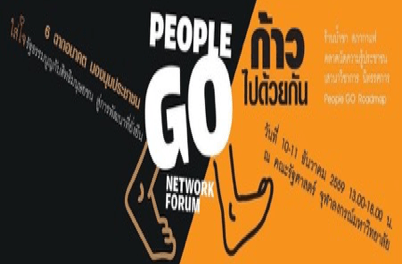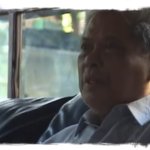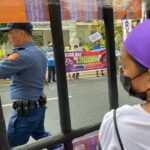by Walden Bello, in The Nation Newspaper, 15 September, 1997, Bangkok, Thailand
Betrayal, horse-trading, wheeling and dealing that’s all part of Asean politics. Walden Bello has the inside story on how the Philippines switched its position on Slorc at the crucial Asean meetings to determine Burma’s membership.
The Philippines’ change of heart began with the special meeting of Asean foreign ministers in Kuala Lumpur on May 31. At that meeting, the Philippines joined Thailand in questioning the admission of Cambodia and Burma.
The two countries aired their doubts about the ability of the Cambodian government and the Burmese State Law and Order Restoration Council (Slorc) to ”implement the 19 Asean treaties and agreements” in light of their continuing political crises.
Indonesia, however, was adamant about bringing in Cambodia and Burma, along with Laos, in July. Finally Thailand and the Philippines withdrew their reservation. It was, however, a reluctant gesture.
The Philippine government’s discomfort with Slorc stemmed partly from the residual influence of the 1987 constitution’s enshrinement of promotion of human rights and democracy as a cornerstone of the country’s foreign policy. It was also partly a product of years of intense lobbying of Philippine officials by pro-democracy forces in Burma and human rights groups in Asia.
Because of Asean’s consensus policy, a stand on principle by the Philippines could have blocked Burma’s membership. But given the pressure exerted by Asean’s authoritarian majority, Siazon’s retreat, albeit inexcusable, was at least understandable.
What was not understandable, not excusable and to many observers very strange was the way that the Philippines subsequently about-turned and became a vociferous backer of Burma n the weeks leading up to the Asean annual meeting in late July.
During this critical period, Asean faced the task of legitimising the controversial decision of admitting Burma in the eyes of the world. This was especially urgent since the Asean governments would meet with their dialogue partners in the Asean Regional Forum (ARF) in Kuala Lumpur immediately after the Asean ministerial conference that would admit Burma, and many of these countries are Slorc’s severest critics.
A probe into the backstage of politics by analysts with access to Asean’s inner circles revealed a sorry tale of realpolitik and ambition riding roughshod over the principles of democracy and human rights that are supposed to guide the foreign policy of a government that claims to be East Asia’s most vibrant democracy.
Among other things, it disclosed the hand of Indonesia in the formulation of the Philippines’ Asean policy.
Suharto factor
In the last few years, Indonesian President Suharto, the longest reigning chief executive in Asean, made Burma’s admission to Asean a personal crusade, and he underlined this with a visit to Burma in February, where he gave Slorc an assurance of membership with no strings attached.
Suharto hated people linking Burma’s admission with the 1990 elections, which were won by Aung Sang Suu Kyi’s National League for Democracy (NLD) but the result was not respected by the military junta.
Indeed, he was not even comfortable with Asean’s declared policy of ”constructive engagement”. The Indonesian dictator saw that accommodating Asean’s human rights critics on Burma could set Asean on the path of ultimately having a say on Indonesia’s domestic governance and its controversial annexation of East Timor.
The Burma issue thus became a proxy for the smoldering struggle between authoritarianism and democracy as the principles of governance in Asean. By aggressively pushing the Asean ”principle” of strict non-intervention in domestic affairs, the Suharto regime was deepening the trenches for the defence of its own authoritarian rule in Indonesia.
From the Indonesians’ perspective, bringing in Burma was also critical from another angle it would strengthen the authoritarian pole in the balance of power within Asean.
It would serve to neutralise the formal democratic regimes the Philippines and Thailand and prevent them from following foreign policies that would be more sympathetic to democratic forces on the ground, which in Suharto’s paranoid view were lending material and ideological aid to the rising opposition in Indonesia.
Indonesia, however, faced a problem in the aftermath of the May 31 decision to bring Burma into the Asean fold. Being strongly authoritarian, it did not have the moral weight to be the prime mover in the campaign to legitimise Burma’s Asean membership.
Here is where the Philippines became useful. What could be a better counter to the ”propaganda” of the West than have the Philippines, a democratic country, act as Burma’s official sponsor and loudest backer? In this calculation, Asean insiders say the hand of Indonesian Foreign Minister Ali Alatas was evident, for he is, among Asean’s foreign ministers, smooth and savvy when it comes to dealing with the media and international public opinion.
Slorc official sponsor
To sandbag the Filipinos into acting as Slorc’s official sponsor, the Indonesians, according to Asean insiders, pressed a number of buttons. They appealed to the Filipinos’ utang na loob, or debt-of-gratitude, for brokering the deal that settled the Mindanao conflict.
Alatas also made it clear to the Filipinos that, as Asean’s most influential member, Indonesia would be decisive in determining who the grouping’s next secretary-general would be.
For months, President Fidel Ramos had been lobbying the various governments to secure that post for Rodolfo Severino, a widely respected and outstanding Filipino diplomat. But there was one not insignificant problem: the current officeholder, Malaysia’s Ajit Singh, was running for a second five-year term, and he could count on the support of a number of Asean governments.
Malaysia’s desire to retain the post stemmed from the restructuring of the Asean secretariat carried out in 1992, which made the secretary-general a much stronger executive with the power to implement decisions, take initiatives and proactively offer advice to members.
Singh was the first Asean secretary-general who had been accorded the position and power of a minister, and Prime Minister Mahathir Mohamad was known to favour his continuing in the post because it allowed Malaysia ”more say and clout” in Asean matters.
A number of member countries, however, were reluctant to support Singh for fear of the precedent this would set, since no one had yet served two consecutive terms. The emerging camps on the issue appeared to be evenly matched, and it was at this point that the Indonesians told Manila they were open to supporting Severino against Singh but on certain conditions, including a more active and high-profile role in supporting the entry into Asean of their protegee, Slorc.
The Philippine-led propaganda bandwagon, however, had an obstacle that could have potentially derailed Burma’s admission two days after Maung’s visit the Hun Sen coup in Cambodian on July 6. Clearly, there was no way Cambodia could be admitted, and since Asean had earlier resolved that Cambodia, Laos, and Burma would come in simultaneously, many quarters in Asean voiced support for deferring the membership of Burma and Laos as well.
”Asean now has a way of circumventing the pressure over Burma,” said Abdul Razak Baginda, head of the quasi-government Malaysia Strategic Research Centre, reflecting the sentiment in many Asean circles that bringing in Burma was costing Asean greatly in terms of international credibility.
The opportunity to postpone Burma’s membership came during the critical July 10 emergency meeting of Asean foreign ministers in Kuala Lumpur. Singapore and Thailand, according to insider sources, were leaning toward deferring Burmese membership until December, but their decision hinged greatly on Manila’s position.
However, under Alatas’ watchful eye, Foreign Affairs Secretary Siazon not only failed to make an issue about going back on the ”simultaneous entry policy” but lobbied instead for admitting Slorc and Laos while deferring Cambodia’s membership.
Myanmar, not Burma
It was left to Siazon to complete the transformation of the Philippine government’s position from being a reluctant and passive player to Slorc’s most rabid apologist.
This occurred in Kuala Lumpur on July 29, the last day of the Asean Regional Forum meeting. At an early morning joint press conference on bilateral issues featuring Siazon and Australian Foreign Minister Alexander Downer, what was expected to be a sedate affair exploded when Siazon, without warning, lashed out at those in the room, including Downer, who had been using the term Burma instead of Myanmar.
”I don’t know why people keep calling it [Burma] by a name which it’s not supposed to be called,” Siazon fumed.
”When people ask for cooperation with another country and you call their country by another name, it may not feel that it’s the country that’s being addressed. So you are talking to the wall.
”I think it’s just appropriate that you call a country by its rightful name whether you like it or not.”
Questioned later by journalists, Siazon defend his angry words by saying that ”Ohn Gyaw [Slorc’s foreign minister] explained that it was called Burma because the British could not pronounced Myanmar right. Myanmar is what is listed here [Asean] and in the UN, but people keep insisting on calling them Burma. It’s patronising.”
One effect that Siazon’s outburst did have was to get his Australian counterpart Downer to use ”Burma/Myanmar” during the rest of the press conference. Said one journalist covering the event: ”It [Siazon’s outburst] was uncalled for. He was coming way out front to take the flak for Slorc far more than Badawi [Malaysia’s foreign minister].”
Siazon’s role as apologist for Slorc on July 29 is understandable in light of an earlier event which took place at the close of the Asean ministerial meeting proper the polling for Asean’s next secretary-general.
The official Asean story was, of course, that the result was a product of ”consensus”, but insider sources revealed a more complex and tense affair, in which the Filipinos were kept hanging in suspense till the end.
At this highly restricted session, Indonesia’s Alatas was delegated by the Asean ministers to sound out each country’s representative.
It came down to four ministers Brunei, Malaysia, Laos and Burma choosing Singh, and four supporting Severino Thailand, the Philippines, Singapore and Vietnam.
It was at that point that Alatas, who, as poll-taker, was last to reveal his choice, broke the stalemate by declaring for Severino.
The Philippines government had at last garnered the prized position. But in the process it lost what remained of the ”democratic principle” of its foreign policy.
Walden Bello is professor of sociology and public administration at the University of the Philippines and co-director of Focus on the Global South at the Chulalongkorn University Social Research Institute.







